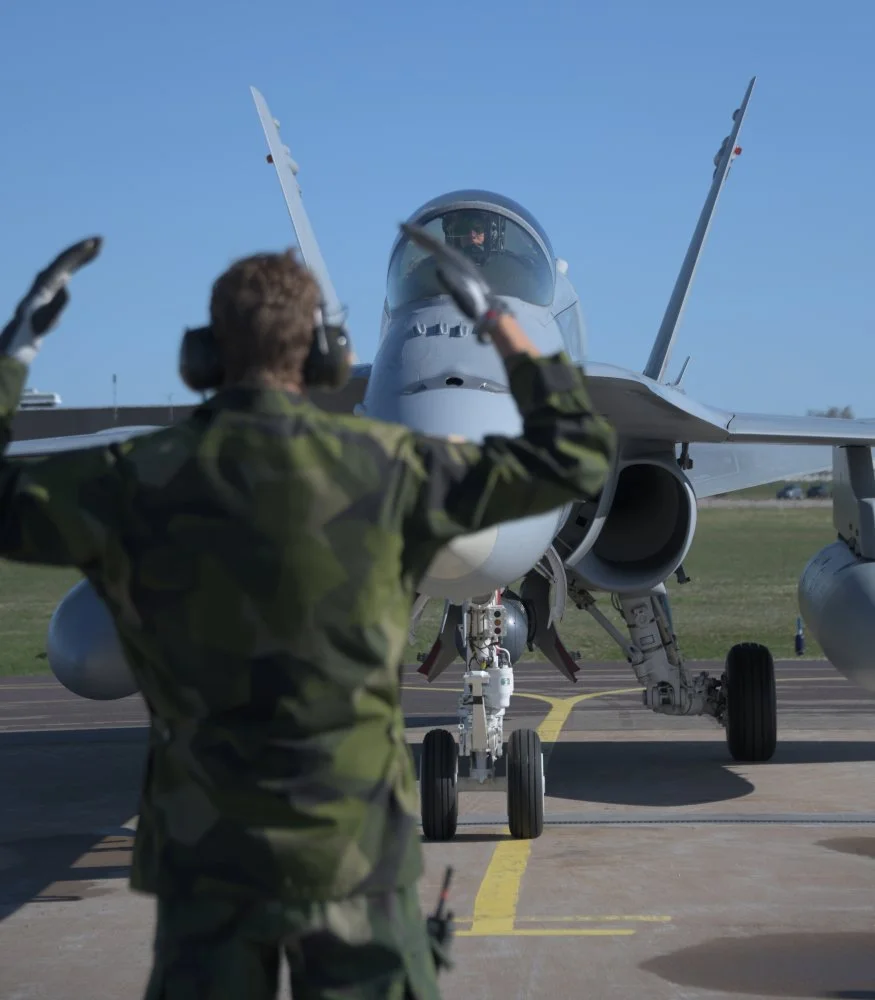Analyzing The Potential Of A Joint Swedish-Finnish Military Force

Table of Contents
Enhanced Defense Capabilities through Combined Resources
A Joint Swedish-Finnish Military Force offers the potential for a significant enhancement of defense capabilities through the pooling of resources. This synergistic approach promises considerable advantages in several key areas.
Combined Military Hardware and Technology
The combined military assets of Sweden and Finland represent a substantial force. A joint force would allow for:
- Economies of scale: Reducing redundancy in equipment procurement and maintenance by standardizing on common platforms. For instance, sharing fighter jet fleets (like the Gripen and F-35) and naval vessels could drastically reduce operational costs.
- Technological synergy: Joint development projects in areas such as air defense systems, cyber warfare capabilities, and intelligence gathering could yield cutting-edge technologies unattainable through individual efforts. Sharing expertise and research would accelerate technological advancement.
- Increased efficiency: Streamlining logistics, supply chains, and training programs would lead to improved efficiency and reduced administrative overhead.
Increased Manpower and Operational Readiness
Combining the manpower and expertise of both nations would create a larger, more versatile, and readily deployable force.
- Improved training: Joint training exercises would lead to improved interoperability and standardized operational procedures. Specialized skills could be consolidated, maximizing the efficiency of each unit.
- Enhanced response times: A unified command structure and readily available combined forces would allow for quicker response times to crises and threats.
- Greater flexibility: The combined force pool would offer greater flexibility in deployment scenarios, allowing for a more tailored response to various challenges.
Geopolitical Implications and Strategic Advantages
The establishment of a Joint Swedish-Finnish Military Force would have profound geopolitical implications, significantly altering the regional security landscape.
Deterrence against External Threats
A unified force would act as a powerful deterrent against potential aggression:
- Enhanced territorial defense: The combined military strength would significantly enhance the defensive capabilities of both nations, making an attack far less appealing to potential adversaries.
- Increased credibility: A stronger, unified force would bolster the credibility of both nations within NATO and the EU, enhancing their influence in international affairs.
- Symbolic significance: The creation of a joint force would send a powerful symbolic message of Nordic unity and resolve, projecting an image of strength and stability.
Strengthening Regional Stability and Cooperation
The joint force would play a vital role in maintaining regional security and stability in the Baltic Sea region:
- Joint peacekeeping operations: The combined force would be better equipped to participate in international peacekeeping missions and crisis response operations.
- Nordic collaboration: The initiative could serve as a catalyst for enhanced cooperation among other Nordic countries, strengthening regional security architecture.
- Improved diplomacy: A strong, unified defense posture could foster improved relations with neighboring countries and strengthen regional diplomacy.
Challenges and Considerations of Integration
While the potential benefits are significant, the creation of a Joint Swedish-Finnish Military Force faces considerable challenges.
Political and Bureaucratic Hurdles
The integration process would require overcoming significant political and bureaucratic obstacles:
- National sovereignty: Balancing national interests and sovereignty concerns will be crucial for successful integration.
- Defense policy alignment: Harmonizing defense policies and doctrines will require extensive negotiations and compromises.
- Command structure: Establishing a clear and efficient command structure will be essential for effective operational coordination.
Financial and Logistical Implications
The financial and logistical considerations involved are substantial:
- Cost-benefit analysis: A thorough cost-benefit analysis is essential to ensure the economic viability of the project.
- Infrastructure sharing: Integrating existing infrastructure and logistics systems will require significant investment and coordination.
- Funding mechanisms: Securing adequate funding through national budgets and potentially international partnerships will be crucial.
Conclusion: The Future of Nordic Defense and the Joint Swedish-Finnish Military Force
The establishment of a Joint Swedish-Finnish Military Force presents both significant opportunities and considerable challenges. The potential benefits – enhanced defense capabilities, improved regional stability, and stronger deterrence – are undeniable. However, careful planning, effective communication, and strong political will are essential to overcome the political, bureaucratic, financial, and logistical hurdles. Further research and open discussion are crucial to fully understand the implications and potential of a Joint Swedish-Finnish Military Force and its transformative impact on Nordic security. We encourage readers to delve deeper into the specific aspects of this complex issue, exploring the nuances of military integration, cost-benefit analyses, and the geopolitical dynamics involved in forging such a significant partnership.

Featured Posts
-
 E Bay Listings For Banned Chemicals Section 230 Protection Challenged
Apr 22, 2025
E Bay Listings For Banned Chemicals Section 230 Protection Challenged
Apr 22, 2025 -
 Ryujinx Emulator Project Ends After Reported Nintendo Intervention
Apr 22, 2025
Ryujinx Emulator Project Ends After Reported Nintendo Intervention
Apr 22, 2025 -
 Ftcs Appeal Against Microsoft Activision Merger Approval
Apr 22, 2025
Ftcs Appeal Against Microsoft Activision Merger Approval
Apr 22, 2025 -
 Celebrities Who Lost Homes In The La Palisades Fires A Complete List
Apr 22, 2025
Celebrities Who Lost Homes In The La Palisades Fires A Complete List
Apr 22, 2025 -
 88 Year Old Pope Francis Dies After Pneumonia Illness
Apr 22, 2025
88 Year Old Pope Francis Dies After Pneumonia Illness
Apr 22, 2025
